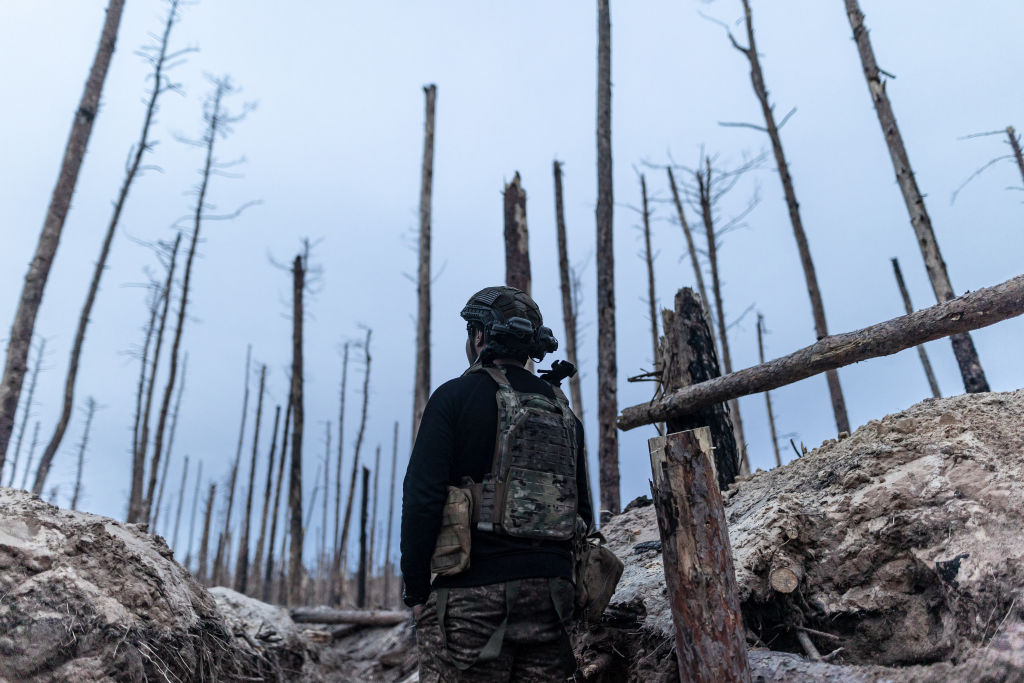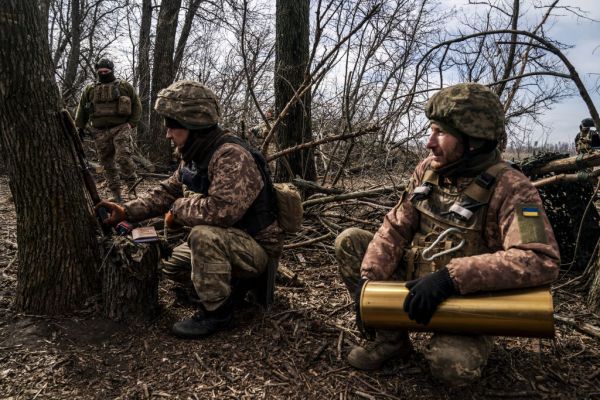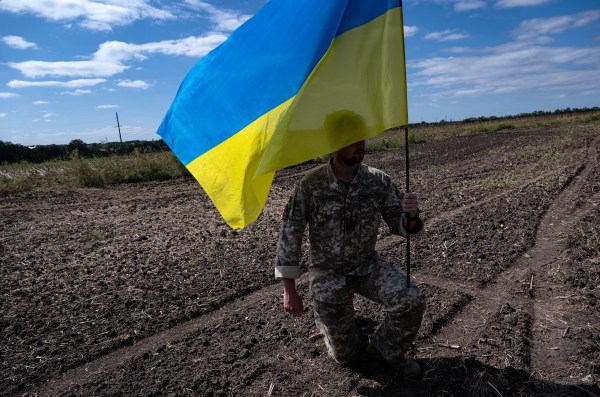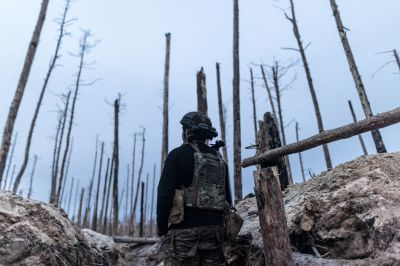To what I expect must have been no one’s great surprise, Donald Trump’s vow to have the Russia-Ukraine war sorted out before he was even sworn in—or on his first day in office at the latest—did not bear fruit. One might be forgiven for fearing that this will end up being the “concepts of a plan” health care proposal of Trump II—four years of being three weeks away from a big, bold proposal.
Weird thing is, that might be the best-case scenario for now—for the Ukrainians, at least.
Trump is no friend of Ukraine. Earlier this week he dipped into his stream of consciousness to pronounce that Ukraine “might be Russian someday” as J.D. Vance, the poor man’s Tucker Carlson, prepared to meet with Ukrainian leader Volodymyr Zelensky. He is surrounded by people who derive some weird kind of jollies from smearing and vilifying the Ukrainians—the vice president and other so-called nationalists who are all too happy to see a nationality exterminated if that pleases Vladimir Putin—as well as by people such as Kash Patel, the Kremlin stooge (on the cheap, no less) whom Trump has nominated to run the FBI. Trump will simply never forgive Ukraine for its government’s failure to help him manufacture a phony scandal (entirely superfluous, given the real ones) involving corrupt business practices and the Biden family.
“Russia has a clear history of interfering in elections, in running both covert intelligence operations as well as overt ones involving efforts to influence political leaders as well as citizens,” says professor Greta Lynn Uehling of the University of Michigan, a Ukraine scholar and author of a new book on Russia’s occupation of Crimea. “We have Russian intelligence officers masquerading as Americans and carrying out some of this work. I wouldn’t be surprised if some of them had the direct ear of Donald Trump.”
Uehling argues that American-self interest points toward a different course in Ukraine than the one the Trump administration is blundering toward–which is shaping up to be the usual Trump blend of penny-ante chiseling and incoherence. She argues for a more proactive approach, culminating with Ukrainian accession to NATO.
“Unfortunately, I lost my crystal ball a few days ago and can’t predict the future, but what I’d say is that the paramount objective of the Trump administration should be defense guarantees,” Uehling says. “Only a strong defense guarantee, such as admission to NATO, can lead to a durable end to the war. From the Ukrainian perspective, there have been multiple agreements that have been signed, all of them broken, and NATO is the only durable way to ensure Ukrainian sovereignty and security.”
Trump’s transactional approach is, she argues, short-sighted. “Take the recent discussion about rare-earth minerals. Trump is interested in making the Ukrainians pay for continued military support. He may have forgotten, or decided to overlook, that we gave them a security guarantee in 1994 as part of the Budapest memorandum. We have a moral obligation to do that without payment. But, that aside, there are pragmatic considerations for the United States in terms of integrity, the United States doing what it says it is going to do in the international arena. And Ukraine is going to need to rebuild once peace is made, and it could be in the U.S. interest to allow Ukraine to use those rare-earth metals in partnership with U.S. companies in ways that benefit both parties.” In this context, integrity is another way of saying credibility, a quickly vanishing commodity in U.S. foreign policy.
Uehling worries that there are still dangers presented by the damaged Zaporizhzhia nuclear power plant, intentionally targeted by Putin’s military in what Ukraine describes as an act of nuclear terrorism. She worries that the war will complicate the politics of nuclear proliferation for years to come. She worries that the displacement of Ukrainians will reach Syrian levels. And while the Ukrainians are not without allies in Europe—if only because self-interested European leaders do not want to see a wave of mass migration across the continent—the United States remains the most important third party to the conflict, one that currently is led by a president who is distinctly cool toward the Ukrainians’ fight for national survival.
“When Trump made the statement that Ukraine might be Russian, that was off-the-cuff and cavalier,” Uehling says. “It seems like it comes from a failure to understand Ukrainians and the value they place on their identity, their country, their connection to one another, and their land.” What does that mean, practically?
“I don’t think the Ukrainians will ever stop fighting,” she says.
At the level of national politics, this is a story about Donald Trump’s pettiness and his habitual submission to strongmen of the sort he aspires to be and would be except for the saving graces of his laziness and stupidity. At the level of geopolitics, this mainly is a story about two things: nuclear proliferation (Moscow’s conventional forces are not much to worry about; Western deference is rooted largely in the paralyzing fear of nuclear retaliation) and the limits of economic sanctions. Uehling believes that the sanctions have been more effective than is generally appreciated, affecting ordinary Russians at the bread-and-butter level, but, even if that is so, Washington’s failure to cut lifelines thrown to Moscow by Beijing, Delhi, and Tehran expose real limits on American geo-economic power.
There is no doubting the courage and the ingenuity of Ukrainian warfighters—who have, among other feats, destroyed 28 Russian warships (including a submarine) in spite of having no real naval assets to speak of. But it is not only Russian aggression that threatens Ukraine: It is Russian aggression abetted by American indifference. That indifference is unwelcome, but it is not the worst-case scenario when there is a different American sentiment, emanating from the Oval Office, that is worse than indifference.







Please note that we at The Dispatch hold ourselves, our work, and our commenters to a higher standard than other places on the internet. We welcome comments that foster genuine debate or discussion—including comments critical of us or our work—but responses that include ad hominem attacks on fellow Dispatch members or are intended to stoke fear and anger may be moderated.
With your membership, you only have the ability to comment on The Morning Dispatch articles. Consider upgrading to join the conversation everywhere.